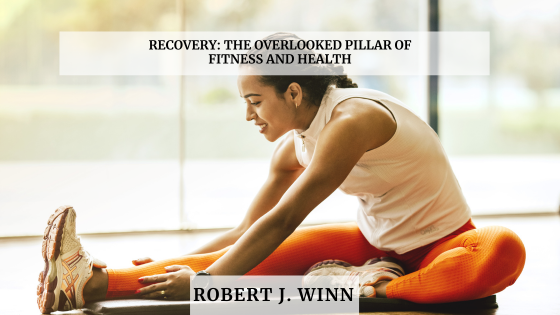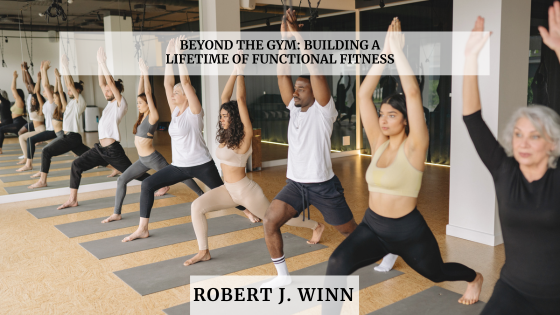
Recovery: The Overlooked Pillar of Fitness and Health
When people think of fitness, they often picture heavy weights, intense workouts, and sweat-drenched sessions. While training is essential, what many overlook is that true progress happens outside the gym—during recovery. Recovery is not just rest; it is an active process that allows the body to repair, adapt, and grow stronger. Ignoring it can stall progress, invite injuries, and ultimately derail long-term health goals.
Why Recovery Matters
Every workout is a form of stress. Lifting weights creates tiny tears in muscle fibers, running taxes joints and tendons, and high-intensity training depletes energy reserves. Recovery is the phase where these stresses are repaired and adapted into strength, endurance, and resilience. Without adequate recovery, the body remains in a constant state of breakdown rather than growth.
Think of recovery as the balance to exertion: training challenges the body, recovery transforms that challenge into improvement. Together, they form the complete cycle of fitness.
Types of Recovery
Recovery is more nuanced than just taking a day off. It comes in multiple forms, each playing a critical role in long-term performance:
-
Sleep: Perhaps the most underrated tool. During deep sleep, growth hormone is released, fueling tissue repair and muscle growth. Poor sleep not only slows recovery but also increases the risk of injury and impairs decision-making.
-
Active Recovery: Gentle movement—like walking, yoga, or swimming—enhances circulation, flushing out metabolic waste while delivering nutrients to muscles. It helps you feel less stiff and accelerates healing.
-
Nutrition: Fueling the body with protein, complex carbs, and healthy fats post-workout replenishes glycogen stores and provides the raw materials for muscle repair. Hydration is equally crucial to support cellular function and recovery.
-
Mobility and Stretching: Dynamic stretches and mobility drills improve range of motion and prevent the buildup of tightness that can lead to injuries.
-
Mind-Body Practices: Stress management through meditation or breathwork can reduce cortisol levels, which, when chronically high, interfere with recovery.
Common Mistakes in Recovery
Many fitness enthusiasts fall into the “more is better” trap, believing that progress comes from pushing harder every day. But overtraining is real—it leads to fatigue, mood swings, plateaus, and even long-term damage to joints and muscles. Another mistake is inconsistent recovery: neglecting sleep during the workweek and trying to “catch up” on weekends doesn’t provide the same benefits as consistent, high-quality rest.
Recovery as a Lifestyle
What makes recovery unique is that it’s not confined to the gym—it’s part of your daily lifestyle. Setting a bedtime routine, fueling your body with whole foods, staying hydrated, and scheduling downtime are as critical as the workouts themselves. Athletes often say, “Train hard, recover harder,” because they know recovery determines how far they can push their limits.
The Takeaway
Fitness is not just about effort; it’s about balance. Recovery transforms sweat and strain into strength and stamina. It is the quiet, unseen work that makes visible progress possible. By giving recovery the attention it deserves—through sleep, nutrition, active rest, and mindfulness—you’re not just avoiding burnout, you’re setting the stage for sustainable fitness and lifelong physical health.
So the next time you plan your workout, remember: growth doesn’t happen when you lift the weight, but when you recover from lifting it.

Beyond the Gym: Building a Lifetime of Functional Fitness
When we think about fitness, it’s easy to imagine high-intensity workouts, gym memberships, or the latest fitness trend. But true, long-term fitness isn’t just about sweating through a session — it’s about building a body that supports your life well into your 70s, 80s, and beyond.
Functional fitness is a philosophy that emphasizes movements we use every day — bending, reaching, lifting, walking, or climbing stairs. Unlike isolated exercises that target one muscle group, functional fitness trains your body for real-world activities. It’s not about achieving the “perfect” physique, but about staying agile, mobile, and injury-free as you age.
The Importance of Intentional Movement
Modern life makes it easy to be sedentary. Many of us sit for long periods, and even daily workouts can’t fully counterbalance hours of inactivity. That’s why small, intentional movements matter. Taking the stairs, stretching between meetings, or going for a brisk walk after dinner all contribute to cumulative wellness.
Exercise doesn’t need to be extreme — but it does need to be consistent. A 20-minute bodyweight workout three to four times a week can significantly improve balance, strength, and mobility.
Strength Training: A Non-Negotiable
Muscle mass naturally declines with age, a process called sarcopenia. But strength training, even with light weights or resistance bands, helps slow or even reverse this trend. For adults over 40, two sessions of resistance training a week can enhance bone density, metabolic function, and joint stability.
Fitness as Preventive Medicine
The real win with exercise? Prevention. Regular physical activity lowers the risk of heart disease, diabetes, certain cancers, and cognitive decline. It boosts mood, improves sleep, and helps regulate stress — all without a prescription.
Starting Small, Staying Consistent
If you’re new to fitness or returning after a long break, start small. Choose one or two movements to repeat daily. Track your progress, not just in pounds or reps, but in how your body feels. Can you lift grocery bags more easily? Climb stairs without losing breath?
Fitness isn’t a destination — it’s a lifelong journey. And the goal isn’t perfection, but progress that supports your ability to live fully and independently, every single day.
About Robert J. Winn
Robert J. Winn is a family physician based in Haddon Township, NJ. For over fifteen years Dr. Winn has worked to provide care to vulnerable populations that face barriers to healthcare access. As a medical professional, Dr. Winn understands how important fitness is to one’s health. On a personal level, he also understands what it’s like to be overweight, so he is able to empathize with patients who struggle to live healthier lives.
Robert J. Winn’s fitness journey started relatively later in life. Although he helped other people become healthy and stay that way, Dr. Winn had fallen victim to a situation that many busy professionals find themselves in. At age 45 he was overweight and didn’t make time for daily exercise. Toward the end of 2014, Dr. Winn realized that something had to change. He had trouble fitting into the clothes he owned, and activities like walking up a flight of stairs exhausted him. Dr. Winn made the decision to turn his health around by devoting himself to fitness.
One of the most important aspects of being a physician is making sure that patients are taking the necessary steps to remain healthy. However, Dr. Winn was not following his own recommendations. In order to remedy this situation, he joined Unite Fitness, a local fitness studio. The Unite Fitness philosophy of “Heart, Muscle, Mind” resonated with Dr. Winn. With the help of Coach Gavin, the founder of the studio, Dr. Winn was able to shed 50 pounds over the course of six months.
Although Robert J. Winn started his fitness journey by attending a fitness studio and receiving instruction from the staff, he realizes that many people, including the majority of his patients, may not have the resources to purchase a membership or home fitness equipment. It’s important to remember, though, that getting in shape does not have to cost an exorbitant amount of money. In fact, you don’t have to join a gym or purchase anything to get started. Dr. Robert J. Winn recommends that patients begin by walking 30 minutes each day. Also, on the internet, you can find numerous free resources like exercise tips and guides that you can use to workout at home in your living room.
One way that Dr. Winn stayed motivated in the beginning of his fitness journey was by sharing updates on social media. His friends and family saw his progress and encouraged him along the way. Plus, patients were able to witness the transformation take place firsthand. As a result, many patients were inspired to get in shape themselves. Sharing his fitness journey on social media also encouraged Dr. Winn to work harder to lose weight because he didn’t want to let his patients down. He wanted to show them that it was possible for anyone to get in shape and become healthier as long as they are dedicated and work hard.
Being overweight leads to many health issues such as depression, high cholesterol, and diabetes just to name a few. Exercising on a daily basis can prevent or eliminate these types of difficulties. Dr. Robert J. Winn uses his personal fitness journey as an example that patients can relate to. Today he feels stronger, healthier, and happier as a result of his active lifestyle and healthy diet. He continues to encourage his patients to take small fitness steps so that they can live life to the fullest with fewer health issues holding them back.
To help keep others healthy, Robert J Winn just opened Real Wellness, LLC, a private family medicine practice that’s located in Haddon Township, New Jersey. Real Wellness is not a typical doctor’s office. Winn’s practice treats the patient, instead of just whatever issue they’re having. At the patient-centered practice, all appointments last for at least 30 minutes in order for Dr. Winn to get to know each patient and their background so he can provide the best possible care. Many practices are too focused on how many patients they get that they don’t provide quality care. Robert J Winn focuses solely on the quality of care he gives every patient, which is what makes him so successful as a physician.
